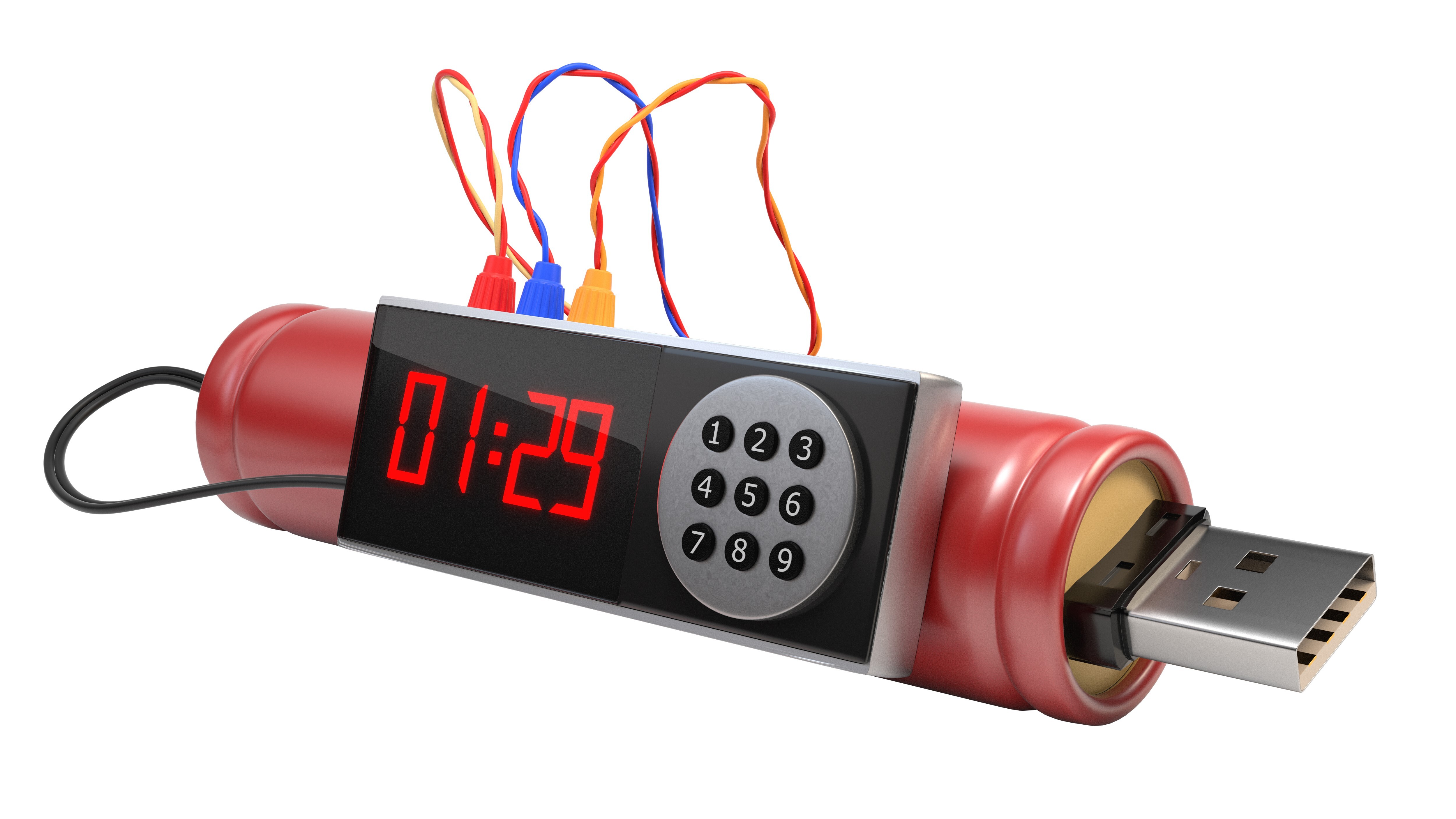
Journalists at Ecuadorian news outlets have received USB thumb drives rigged with military grade explosive charges. According to the Associated Press, at least five booby-trapped USB flash drives were sent to journalists across Ecuador. Thankfully, only one of the devices actually exploded, and it caused no injuries. A suspect has been detained for questioning.
Lenin Artieda, a journalist at the Ecuavisa news organization, was the unfortunate recipient of the USB flash drive that actually exploded. Artieda opened an envelope on Monday morning and fished out a nondescript USB drive. He plugged it into his computer and it exploded, destroying the PC.
Neither Artieda, nor anyone else in the room, were injured by the blast. Later investigations by the authorities revealed that only half of the explosive charge within the USB flash drive case had ignited — so the journalist and others in the office at the time of the explosion were lucky, in a way.
🔴 #AtentadoEcuavisa | Según el teniente coronel de la Policía, Xavier Chango, quien es jefe nacional de Criminalística, señaló: “Si es que se hubiera activado por completo, el daño pudo haber sido superior al que encontramos”.Más detalles 📲 https://t.co/befPnjGJWw pic.twitter.com/RHBCWiXYDQMarch 20, 2023
Artieda is well known for his news coverage of crime and corruption. He has obviously ruffled the feathers of one or more nefarious Ecuadorian individuals to receive this unwelcome attention. Government officials are calling the USB drive mail bombs domestic terrorism.
The explosive packed into the USB drives is thought to have been RDX. RDX is a high explosive that's more powerful than TNT and has no discernible smell or taste, and was widely used in WWII. You've probably heard of RDX's plasticized form — it's the explosive agent found in C-4.
Other news outlets in Ecuador were similarly targeted. According to the AP report, Teleamazonas, Radio Exa, and TC Televisión also received devices but they failed to explode. The report doesn't discuss why these devices failed to explode, but perhaps the USB ports they were plugged into didn't offer a high enough voltage to detonate the RDX. Authorities also intercepted one explosive USB device before it reached its destination.
Computer users should always beware of unsolicited, found, or left-behind USB drives. Even if they aren't rigged with explosives, plugging in an unknown USB drive is risky — they could house viruses, such as spyware, keyloggers, Trojans etc. There are also USB killer sticks, which are widely and cheaply available and are not very friendly to electronic devices.







